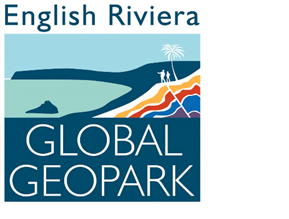News from the GeoparkThe English Riviera UNESCO Global Geopark Launches new Interactive 3D Map17 Sep 2022The English Riviera UNESCO Global Geopark is launching a brand new hi-tec interactive 3D map, created through a long-standing partnership with the Environmental Futures and Big Data Impact Lab project at the University of Plymouth. The launch of the map coincides with UNESCO’s International Geodiversity Day on 6 October. The 3D map can be viewed and used at www.englishrivierageopark.org.uk The project has created an online interactive visualization tool, bringing together all the Geopark partner sites in an accessible way. The map is easy to navigate online and includes links to activities, points of interest, events, recommended walks and partner locations. Users are able to select different ‘layers’ to explore the Geopark. There is a standard map view, Street View, a birds-eye view, Satellite View and a unique Geology View, showing just how diverse the geology of Torquay, Paignton and Brixham is. It can be accessed from the home page of the English Riviera UNESCO Global Geopark website from 6 October. The English Riviera UNESCO Global Geopark covers the entire area of Torbay. The resort gained UNESCO recognition because of the strong connections between the internationally significant, and diverse, geology found here and the natural and cultural heritage of the area. This project forms part of the Geopark’s remit to align with the United Nation’s educational, scientific and cultural organisation’s (UNESCO’s) ambition for the management of protection measures, sustainability, accessibility and education. Geoparks around the World seek to implement innovative ways to rejuvenate beautiful locations and attract tourism, job creation and revenue generation, supporting both social and economic development and this project fits with these aims The University of Plymouth is part of the Environmental Futures and Big Data Impact Lab project, supported by the European Regional Development Fund. One stream of funding under the European Structural and Investment Funds (ESIF) Growth Programme 2014–2020, the ERDF focuses on smart, sustainable and inclusive growth. The main priorities involve contributions to research and innovation, supporting and promoting small and medium size enterprises (SMEs), and the creation of a low carbon economy. Sarah Fear, Knowledge Exchange and Project Manager for the Impact Lab project is based within the Sustainable Earth Institute of the University of Plymouth and noted that “It is complex to pull together the variety and volume of data required to create an online platform of this nature, and we are pleased to have been able to offer expertise to support the project with the English Riviera UNESCO Global Geopark” Nick Powe, chair of the English Riviera Geopark management organisation said: “The Sustainable Earth Institute of the University of Plymouth has provided the Geopark with an outstanding on-line resource for our website. The two organisations worked closely to create an ‘easy-to-use’ digital platform to access geological heritage and showcase places to experience in the Geopark. It is a powerful educational tool to assist in the transfer of knowledge relating to the outstanding natural and cultural heritage here in Torbay. I’m sure it will contribute to delivering both economic and social benefits to the local community and the many organisations associated with the English Riviera UNESCO Global Geopark. About UNESCO Global Geoparks https://en.unesco.org/global-geoparks
UNESCO Global Geoparks are areas where sites and landscapes of international geological significance are managed with a holistic concept of protection, education and sustainable development. Their bottom-up approach of combining conservation with sustainable development while involving local communities is becoming increasingly popular. At present, there are 177 UNESCO Global Geoparks in 46 countries. |








